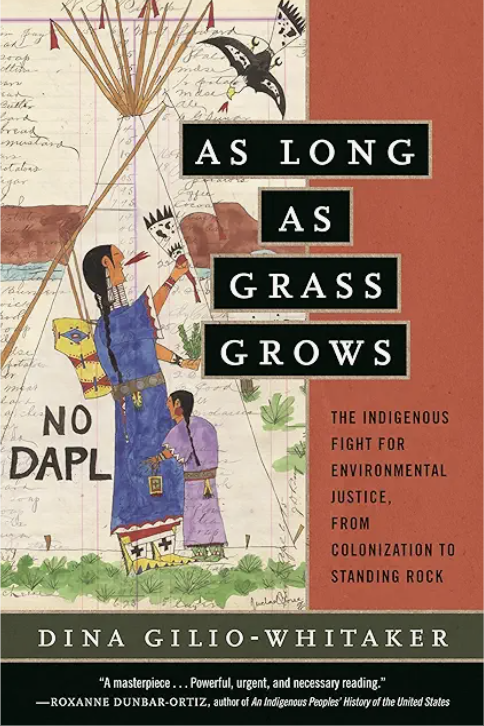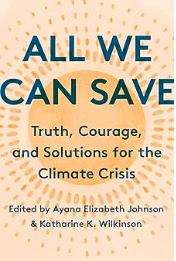Joining libraries and other GLAM organizations across Canada this Climate Action Week, the University of Toronto Scarborough Library presents a collection of resources that focus on climate change related challenges, and sustainability and climate justice efforts.

The aim of this collection is to raise awareness, answer our communities’ growing needs, and articulate clearly that libraries are places to connect people and access resources on climate change. Some of these resources are available in print and online at U of T Scarborough Library; however, some are available through the Toronto Public Library. We encourage you to search our library to find more resources on topics of interest.
Climate Change
These compelling books delve into the science, impact, and solutions surrounding climate change, offering readers a deeper understanding of the crisis and the urgent need for action. They explore the environmental, social, and economic challenges posed by global warming while highlighting opportunities for innovation, resilience, and collective change.
|
|
Under a white sky: the nature of the future by Elizabeth Kolbert (2021) In Under a White Sky, Elizabeth Kolbert takes a hard look at the new world we are creating. She examines how the very sorts of interventions that have imperilled our planet are increasingly seen as the only hope for its salvation. |
|
|
Losing earth: a recent history by Nathaniel Rich (2021) By 1979, we knew nearly everything we understand today about climate change--including how to stop it. Over the next decade, a handful of scientists, politicians, and strategists, led by two unlikely heroes, risked their careers in a desperate, escalating campaign to convince the world to act before it was too late.
|
 |
The Uninhabitable Earth : a story of the future by David Wallace-Wells (2019) The signs of climate change are unmistakable even today, but the real transformations have hardly begun. In The Uninhabitable Earth, David Wallace-Wells undertakes a new kind of storytelling and a new kind of social science to explore the era of human history on which we have just embarked. |
 |
This changes everything: capitalism vs. the climate by Naomi Klein (2014) In This Changes Everything: capitalism vs the climate, Naomi Klein argues that climate change isn't just another issue to be neatly filed between taxes and health care. It's an alarm that calls us to fix an economic system that is already failing us in many ways. |
 |
The Treeline: the last forest and the future of life on earth by Ben Rawlence (2022) Blending reportage with the latest science, The Treeline is a story of what might soon be the last forest left and what that means for the future of all life on earth |
 |
A Good War: Mobilizing Canada for the Climate by Seth Klien (2020) In A Good War, author and activist Seth Klein looks at the Second World War strategies and shows how they can be repurposed today for a rapid transition. He demonstrates that this change can create jobs and reduce inequality while tackling our climate obligations. |
Climate Justice and Environmental Racism
These essential works shed light on the disproportionate impacts of climate change and environmental degradation on Black, Indigenous and other marginalized communities. They explore the intersection of social justice, climate change and environmental activism, offering strategies for building a more equitable and sustainable future.
 |
This book brings together the works of individuals who are creating a new and vibrant wave of environmental justice scholarship, activism and methodology. |
 |
What Climate Justice means and why we should care by Elizabeth Cripps (2022) Elizabeth Cripps approaches climate justice not just as an abstract idea but as something that should motivate us all. Using clear reasoning and poignant examples, starting from irrefutable science and uncontroversial moral rules, she explores our obligations to each other and to the non-human world, unravels the legacy of colonialism and entrenched racism, and makes the case for immediate action. |
 |
In this eye-opening book, writer and environmental activist Jeremy Williams takes us on a short, urgent journey across the globe--from Kenya to India, the USA to Australia--to understand how White privilege and climate change overlap. |
 |
In There’s Something in the Water, Ingrid R. G. Waldron examines the legacy of environmental racism and its health impacts in Indigenous and Black communities in Canada, using Nova Scotia as a case study, and the grassroots resistance activities by Indigenous and Black communities against the pollution and poisoning of their communities. |
 |
In her book, Washington explores how exposure to toxic pollutants can negatively impact cognitive development. She also examines how environmental racism perpetuates systemic inequality in other areas of life. |
 |
From the Ground Up critically examines one of the fastest growing social movements in the United States—the movement for environmental justice. The authors use social, economic and legal analysis to reveal the historical and contemporary causes for environmental racism. |
 |
Colors of Nature: Culture, Identity and the Natural World edited by Alison Deming and Lauret Savoy. This anthology features essays by writers from diverse cultural backgrounds who explore how their identities intersect with nature and the environment. The essays offer a range of perspectives, as well as insights into issues of environmental justice. |
 |
Environmental Justice: Concepts, Evidence and Politics by Gordon Walker. This collection of essays provides an overview of key concepts related to environmental justice, as well as case studies from around the world that illustrate different ways in which environmental injustice can occur. |
Indigenous Knowledge & Climate Change
This section of books illuminate the importance of Indigenous knowledge and it's essential role, as well as the role of decolonization, reconciliation and Indigenous resurgence, in addressing the climate crisis. Through history, storytelling, and activism, these author's work illuminate pathways toward environmental justice, sustainability and climate resilience.
 |
In this book, Indigenous researcher and activist Dina Gilio-Whitaker explores the fraught history of treaty violations, struggles for food and water security, and protection of sacred sites, while highlighting the important leadership of Indigenous women in this centuries-long struggle. As Long As Grass Grows gives readers an accessible history of Indigenous resistance to government and corporate incursions on their lands and offers new approaches to environmental justice activism and policy. |
 |
In Medicine Wheel for the Planet, building on sacred stories, field observation and personal experience, Dr. Grenz invites readers to share in the teachings of the four directions of the medicine wheel: the North, which draws upon the knowledge and wisdom of elders; the East, where we let go of colonial narratives and see with fresh eyes; the South, where we apply new-old worldviews to envision a way forward; and the West, where a relational approach to land reconciliation is realized. |
 |
The End of This World: Climate justice in So-Called Canada by Angele Alook (2023). Drawing on their work in Indigenous activism, the labour movement, youth climate campaigns, community-engaged scholarship, and independent journalism, the six authors challenge toothless proposals and false solutions to show that a just transition from fossil fuels cannot succeed without the dismantling of settler capitalism in Canada. |
 |
We Are the Middle of Forever places Indigenous voices at the center of conversations about today’s environmental crisis. The book draws on interviews with people from different North American Indigenous cultures and communities, generations, and geographic regions, who share their knowledge and experience, their questions, their observations, and their dreams of maintaining the best relationship possible to all of life. |
Fuelling Hope: Facing the Climate Emergency
This curated selection of books offers powerful insights and actionable strategies for confronting the climate crisis. Together this section weaves together narratives of resilience, innovation, and the transformative potential of hope.
 |
This book illuminates the expertise and insights of dozens of women leading the fight on climate justice in the United States, across generations, geographies and race - and aims to advance a more representative, nuanced and solution-oriented public conversation of the climate crisis. |
 |
How to prepare for climate change: a practical guide to surviving the chaos by David Pogue (2021). In How to Prepare for Climate Change, bestselling self-help author David Pogue offers sensible, deeply researched advice for how the rest of us should start to ready ourselves for the years ahead. This is a self help book that offers advice for how to cope with anxiety relating to climate change and the things coming in the near future. |

|
We are constantly bombarded by doomsday headlines that tell us the soil won't be able to support crops, fish will vanish from our oceans, and that we should reconsider having children. But in this bold, radically hopeful book, data scientist Hannah Ritchie argues that if we zoom out, a very different picture emerges. In fact, the data shows we've made so much progress on these problems that we could be on track to achieve true sustainability for the first time in human history. |

|
Intervention earth: life-saving ideas from the world's top climate engineers by Gwynne Dyer (2023) (available at TPL). Historian, journalist, and author of the prescient book Climate Wars Gwynne Dyer tracks down the world’s top climate engineers to try to answer the question: what can science do to mitigate the catastrophic and irreversible effects of climate change? |

|
Climate justice: hope, resilience and the fight for a sustainable future by Mary Robinson (2018). Powerful and deeply humane, Climate Justice is a stirring manifesto on one of the most pressing humanitarian issues of our time, and a lucid, affirmative, and well-argued case for hope and sharing inspiring stories and offering vital lessons for the path forward. |

